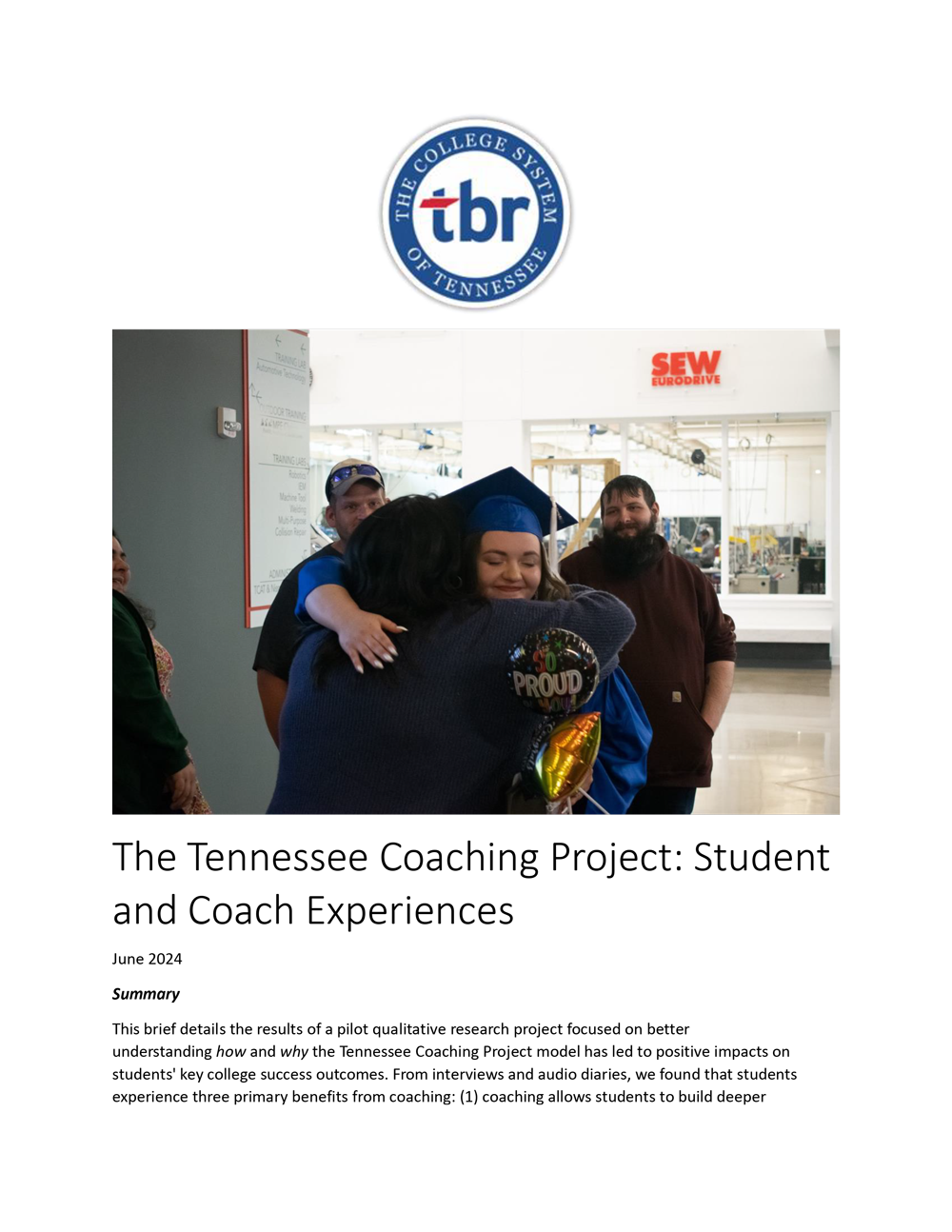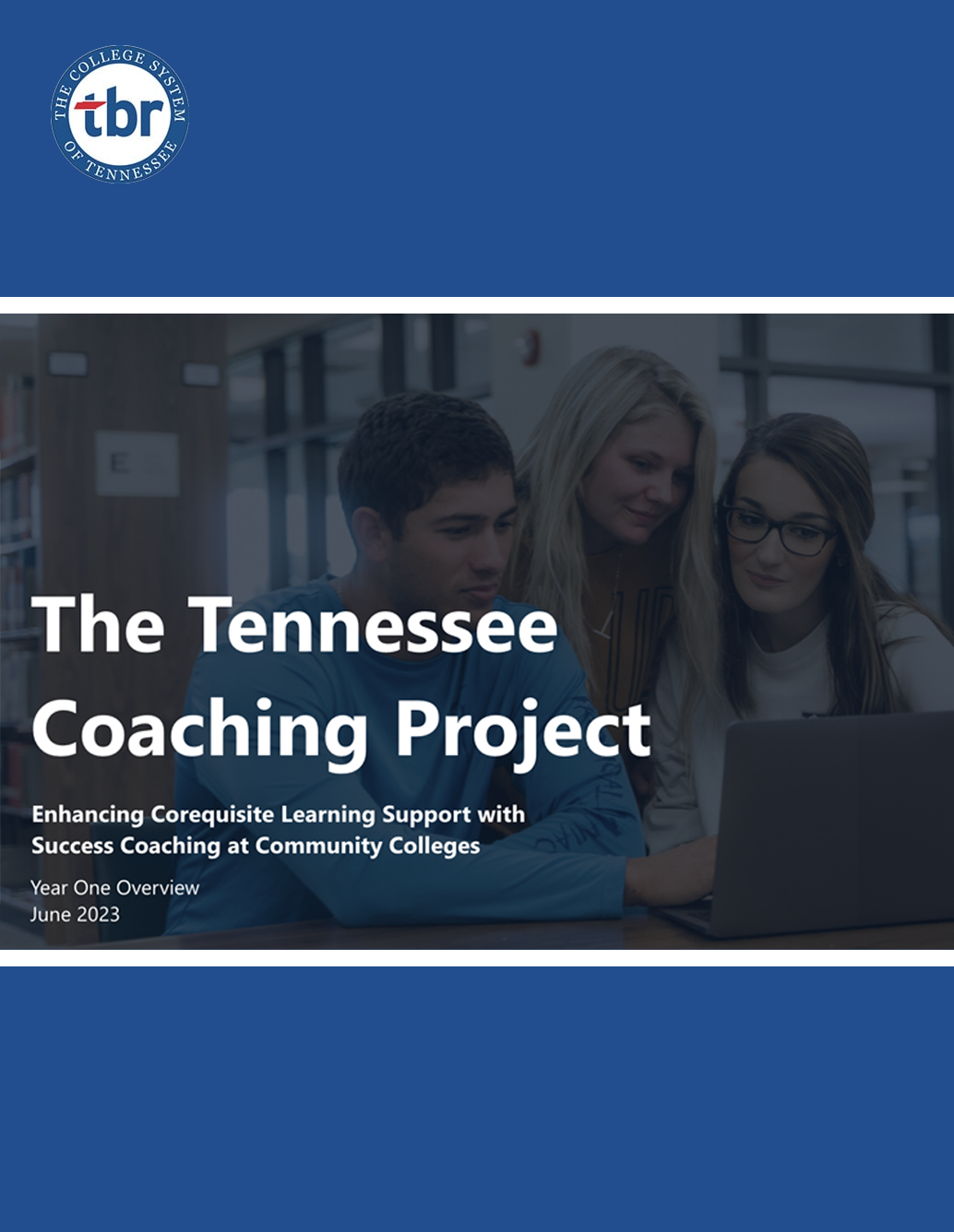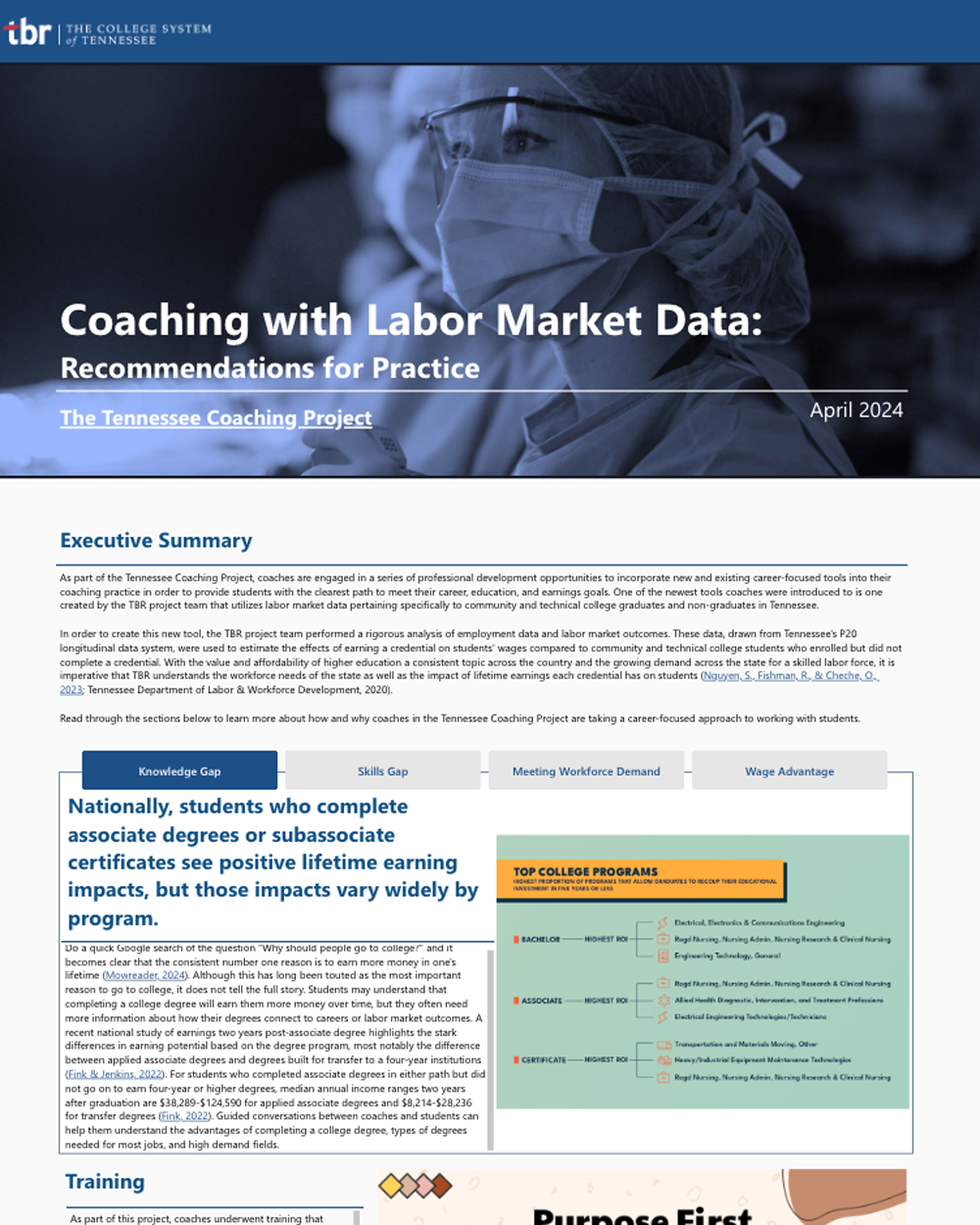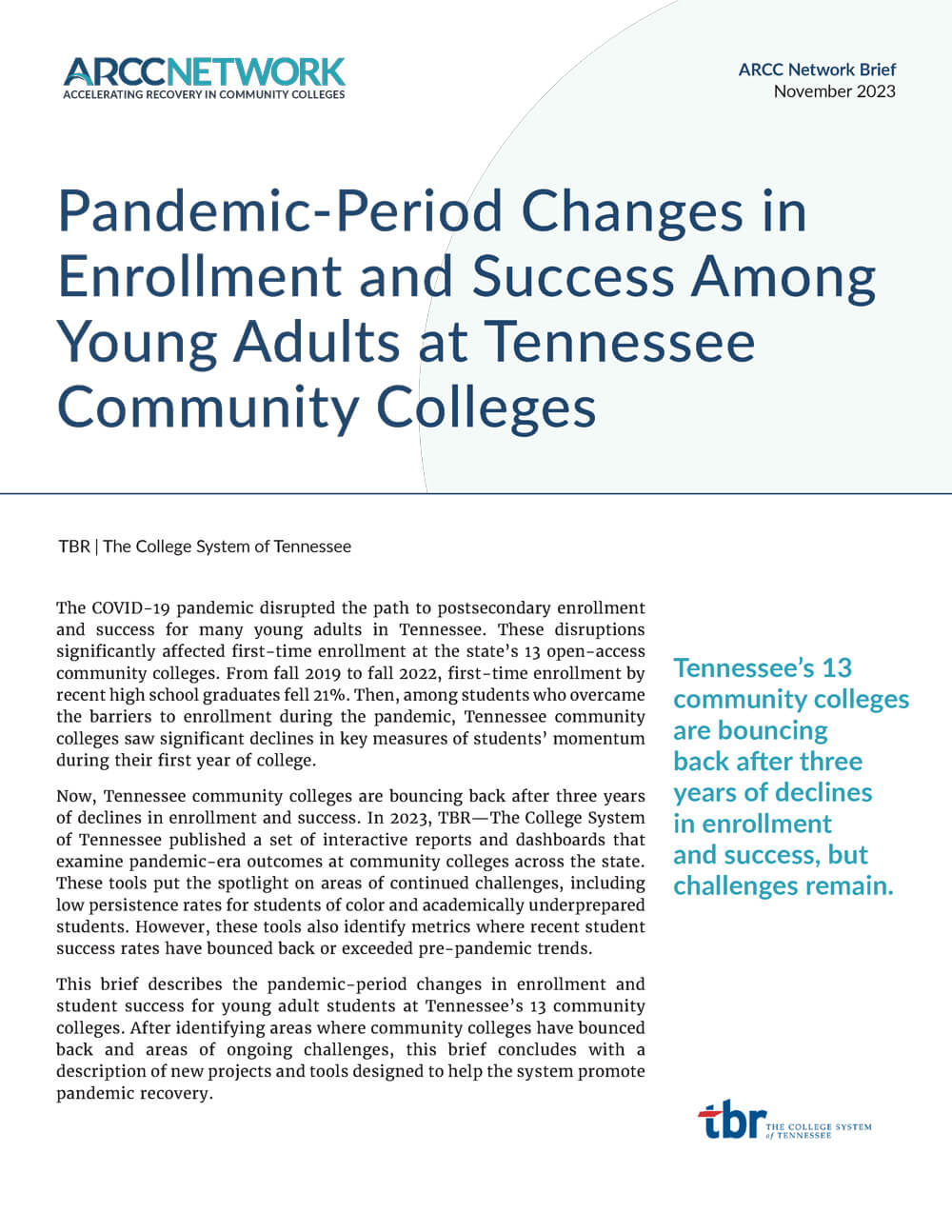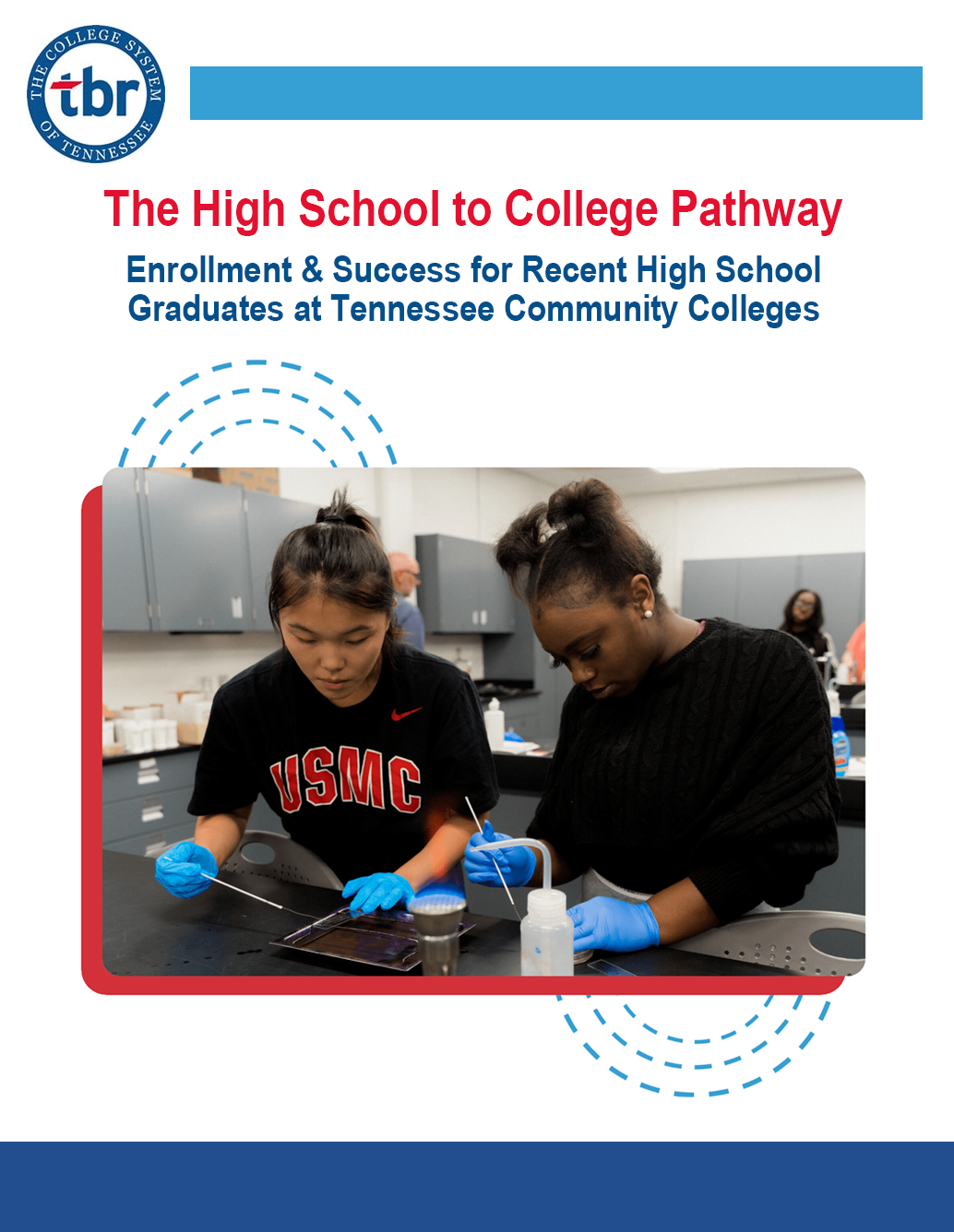Putting Data to Work to Re-Engage Young Adults Who Experienced Pandemic-Related Educational Disruptions
Historically, more than a quarter of first-time students at Tennessee community colleges do not persist past their first semester, and half do not persist beyond their first year. The COVID-19 pandemic exacerbated these persistence challenges at community colleges, and persistence rates were lowest for academically underprepared students.
To support the persistence of young adult students whose educational pathways were disrupted by COVID-19, this project is:
- Examining the impact of COVID-19 on the persistence and credit attainment of Tennessee community college students from the high school graduating classes of 2020 to 2022 compared to students from four pre-pandemic graduating classes, including an analysis of differences in student outcomes by race, socioeconomic status, and academic preparation.
- Identifying employment rates and wage returns for graduates of career-focused associate and sub-associate certificate programs in six in-demand occupational areas compared to graduates of general associate degree programs designed to transfer to a university.
- Implementing and testing a course coaching model that embeds success coaches into corequisite learning support courses to improve the persistence of academically underprepared community college students.
This project is supported by the Institute of Education Sciences, U.S. Department of Education, through Grant R305S220005 to the Tennessee Board of Regents. For more information on the project, visit the Tennessee Coaching Project website.
Publications
The Tennessee Coaching Project: Student and Coach Experiences
TBR—The College System of Tennessee | June 2024
This policy brief shares findings from a pilot study TBR conducted in fall 2023 to better understand how and why the coaching model is working. The findings suggest that coaching benefits students by helping them build deeper relationships, develop connections across campus, and navigate college processes.
The Tennessee Coaching Project: Enhancing Corequisite Learning Support With Success Coaching at Community Colleges
TBR—The College System of Tennessee | April 2024
In a pilot project at two Tennessee colleges, success coaches work with students to navigate coursework, connect with campus resources, and explore careers. This brief overview of the Tennessee Coaching Project details early results that suggest that coaching had a positive impact on student success. Originally published in June 2023 and updated in April 2024.
Coaching with Labor Market Data: Recommendations for Practice
TBR—The College System of Tennessee | April 2024
This policy brief provides an overview of the challenges both students and the Tennessee workforce at large are facing, the training coaches engaged in to have career-focused conversations with students, and information on the tools they are utilizing.
Pandemic-Period Changes in Enrollment and Success Among Young Adults at Tennessee Community Colleges
TBR—The College System of Tennessee | November 2023
This brief describes the pandemic-period changes in enrollment and student success for young adult students at Tennessee’s 13 community colleges. After identifying areas where community colleges have bounced back and areas of ongoing challenges, this brief concludes with a description of new projects and tools designed to help the system promote pandemic recovery.
The High School to College Pathway: Enrollment & Success for Recent High School Graduates at Tennessee Community Colleges
TBR—The College System of Tennessee | March 2023
This dashboard tracks trends in community college enrollment, selection of academic focus area, and student success across several metrics over the last decade. It allows users to filter the data by community college, high school region, K-12 district, high school, race and ethnicity, Pell recipient status, number of learning supports needed, and full or part-time enrollment status.
Lead Researchers
Russ Deaton is the executive vice chancellor for policy and strategy at TBR—The College System of Tennessee where he provides leadership to the offices of Academic Affairs, Student Success, Organizational Effectiveness, and Research and Data. He can be reached at russ.deaton@tbr.edu.
Amy Moreland is the assistant vice chancellor of policy and strategy at TBR—The College System of Tennessee. Her work includes research and policy analysis about enrollment and student success at Tennessee’s 38 community and technical colleges. She can be reached at amy.moreland@tbr.edu.
Ben Castleman is the Newton and Rita Meyers Associate Professor in the Economics of Education at the University of Virginia and the founder and director of the Nudge4 Solutions Lab at the University of Virginia. His research develops and rigorously tests scalable solutions in education and public policy by leveraging behavioral economics and data science strategies in the context of research-policy partnerships. He can be reached at blc4q@virginia.edu.
